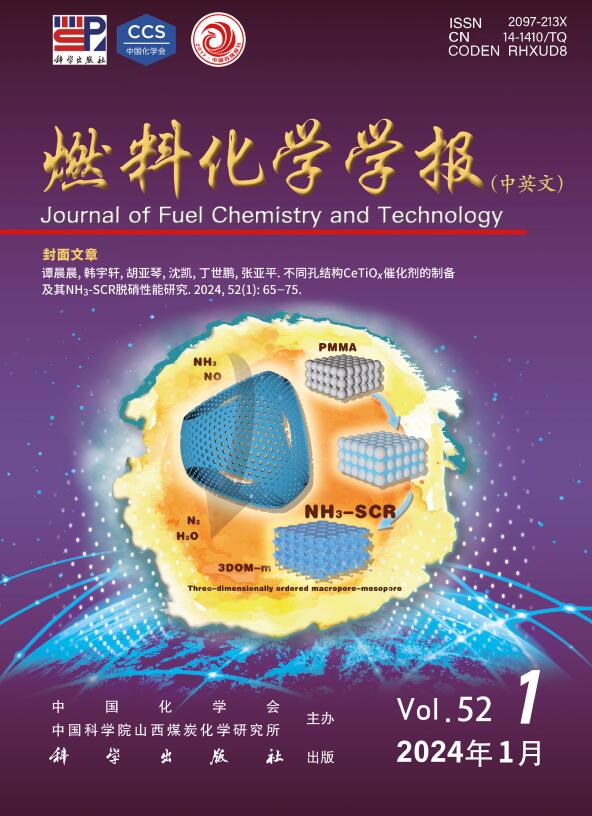Progress of elevated-temperature alkaline electrolysis hydrogen production and alkaline fuel cells power generation
Q3 Energy
引用次数: 0
Abstract
The progress of elevated-temperature alkaline electrolysis for hydrogen production and alkaline fuel cells for power generation is highlighted. Alkaline water electrolysis utilizes platinum group metals and nickel-based alloys, such as Raney nickel and stainless steel, as electrocatalysts. It employs aqueous KOH solutions or molten KOH-NaOH-LiOH as electrolytes, combined with metal oxide diaphragms fabricated via tape casting or electrode-supported powder sintering for product separation. Notably, electrolysis has demonstrated stable operation for over 400 h at temperatures between 100 and 400 °C, with a degradation rate of less than 0.1 V/kh. At the system level, a 20 kW stable water electrolysis has been achieved at 130 °C, allowing flexible transitions between endothermic and exothermic modes for multi-thermal-source thermo-hydrogen energy conversion. Elevated-temperature alkaline fuel cells, using similar electrocatalysts, have expanded their electrolyte options to include solid materials with adequate ionic conductivity, such as high-valence metal-doped phosphates. Liquid-electrolyte systems have successfully achieved kW-level applications in both terrestrial and space environments, while recent solid-electrolyte developments have demonstrated over 160 h of continuous operation, with alkaline membrane fuel cells achieving stable operation for more than 195 h.
高温碱性电解制氢及碱性燃料电池发电研究进展
重点介绍了高温碱性电解制氢和碱性燃料电池发电的研究进展。碱水电解利用铂族金属和镍基合金(如兰尼镍和不锈钢)作为电催化剂。它采用KOH水溶液或熔融KOH- naoh - lioh作为电解质,结合通过胶带铸造或电极支撑粉末烧结制造的金属氧化物隔膜进行产品分离。值得注意的是,电解已证明在100至400°C的温度下稳定运行400小时以上,降解率小于0.1 V/kh。在系统层面,在130°C下实现了20 kW的稳定水电解,允许在吸热和放热模式之间灵活转换,实现多热源热氢能源转换。高温碱性燃料电池,使用类似的电催化剂,已经扩展了他们的电解质选择,包括具有足够离子电导率的固体材料,如高价金属掺杂磷酸盐。液体电解质系统已经成功地在地面和太空环境中实现了千瓦级的应用,而最近的固体电解质发展已经证明了超过160小时的连续运行,碱性膜燃料电池实现了超过195小时的稳定运行。
本文章由计算机程序翻译,如有差异,请以英文原文为准。
求助全文
约1分钟内获得全文
求助全文
来源期刊

燃料化学学报
Chemical Engineering-Chemical Engineering (all)
CiteScore
2.80
自引率
0.00%
发文量
5825
期刊介绍:
Journal of Fuel Chemistry and Technology (Ranliao Huaxue Xuebao) is a Chinese Academy of Sciences(CAS) journal started in 1956, sponsored by the Chinese Chemical Society and the Institute of Coal Chemistry, Chinese Academy of Sciences(CAS). The journal is published bimonthly by Science Press in China and widely distributed in about 20 countries. Journal of Fuel Chemistry and Technology publishes reports of both basic and applied research in the chemistry and chemical engineering of many energy sources, including that involved in the nature, processing and utilization of coal, petroleum, oil shale, natural gas, biomass and synfuels, as well as related subjects of increasing interest such as C1 chemistry, pollutions control and new catalytic materials. Types of publications include original research articles, short communications, research notes and reviews. Both domestic and international contributors are welcome. Manuscripts written in Chinese or English will be accepted. Additional English titles, abstracts and key words should be included in Chinese manuscripts. All manuscripts are subject to critical review by the editorial committee, which is composed of about 10 foreign and 50 Chinese experts in fuel science. Journal of Fuel Chemistry and Technology has been a source of primary research work in fuel chemistry as a Chinese core scientific periodical.
 求助内容:
求助内容: 应助结果提醒方式:
应助结果提醒方式:


